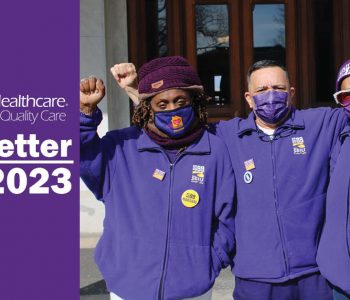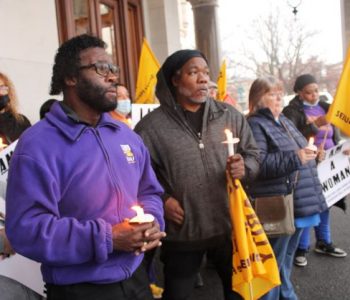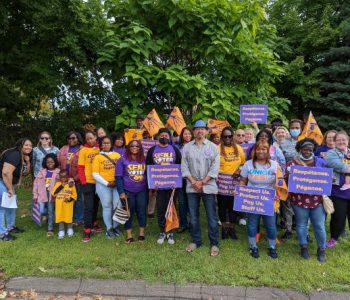 Uncategorized
Uncategorized
Sunday, April 4th, we will observe Easter, a Christian tradition celebrating the defeat of death and the hope for redemption. But April 4th is also the 53rd anniversary of the assassination of the Reverend Dr. Martin Luther King, Jr. in Memphis. I was there then, in Memphis, a young girl in 1968, when it seemed that death had just about defeated us. And I am here now still hoping for redemption.

I was there with my mother, Barbara Cooper, a City of Memphis public school teacher, to see the city’s sanitation workers wearing black and white signs written in block letters with the revolutionary proposition, reverberating my father’s cries, of “I AM A MAN.” I was there to see Dr. King’s last days fighting for livable wages and human rights for these workers. I was there to witness Dr. King’s signature Poor People’s Campaign, as we struggled for economic equality and social justice then, and the campaign remains active now as poverty spreads like wildfire throughout the land.
My father, John Cooper, was a public servant. He was one of the 12 men who made history in 1955 by becoming the first Black firefighters in the City of Memphis, Tennessee, alongside Floyd Elbert Newsum, William Carter, Richard Burns, Robert Crawford, Leroy Johnson, Lawrence Yates, Elza Parsons, George Dumas, Norvell Wallace, Carl Stotts and Murray Pegues.

My father worked hard to save lives. But he endured inequitable conditions, racial discrimination, and the demeaning consequences of segregation. Throughout his life, he was often treated as something less than a human being. The intense pressures of structural racism and the blatant bigotry of those times in Memphis took a heavy toll on my father, my family and on everyone in my community.
I remember the crowds of people seeking justice, hope for a livable wage, and humane treatment as we sat packed in Mason Temple on the eve of Dr. King’s assassination. I was there to hear Dr. King deliver his final speech, inviting us to continue the struggle against racial discrimination, and to share a vision of freedom and equity to lift every community. And I remember my father and the firefighters working that day, hearing their concern and anger, when we heard that Dr. King was dead. I remember watching hopeless people fill the streets in protest and my neighborhood burn in the ensuing riots. I was there then, and I am here now hoping for redemption.
Today, my mother Barbara is a State Representative in the Tennessee House of Representatives, representing District 86 since 1996. She retired as a public-school teacher, community relations specialist and parent coordinator supporting families during the segregation of Memphis City Schools, serving the community to overcome the residuals of racism in a public role. For a talented black woman who grew up in the Jim Crow Era, getting a middle-class job in the public sector was one of the few options available to rise out of poverty.
I learned many lessons of leadership and justice from my parents and my community. The values that Dr. King paid with his own life help guide me through my work every day as an Associate Chaplain for Connecticut’s Department of Correction at York Correctional Institution, a maximum-security facility for pretrial and sentenced female offenders ages 15 and older.
I am there to see the heavy toll of systemic racism and discrimination on Black, Brown and poor communities. I am there to meet the bright minds and beautiful families who never had a chance. I am there to learn about the growing need for services in mental health and addiction. I am there to witness that we have yet a long way to go to make America what it ought to be.
Here we are today, five decades after Dr. King’s assassination still determined to gain our rightful place in God’s world. We’re still struggling to eradicate systemic racism, still fighting for dignity and human rights, still fighting for basic things like ensuring that a wealthy state like Connecticut gets to appropriate sufficient funding to be able to provide quality services.
Here we are today hoping for our State of Connecticut, one of the wealthiest states in one of the wealthiest countries in the world to close the gap, to demolish economic disparities and to reverse long-standing racial inequalities. We hope that our state will protect struggling citizens and the vulnerable populations who need public services to survive. We cannot wait any longer. Our families cannot wait another 50 years. We need redemption. We need it now!
Rev. Joan Cooper Burnett is an associate chaplain with the Connecticut Department of Correction.
The views, opinions, positions, or strategies expressed by the author are theirs alone, and do not necessarily reflect the views, opinions, or positions of CTNewsJunkie.com.



